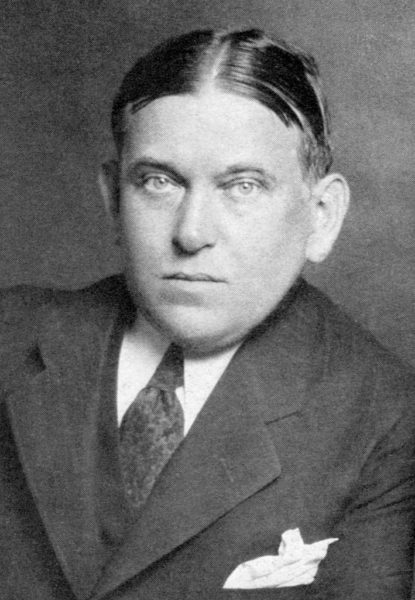David Friedman spends a bit of time debunking some bogus but widely believed historical myths:

“Image” by Lauren Knowlton is licensed under CC BY 2.0 .
The first is a false story that teaches a true lesson — the U.S. did treat Amerinds unjustly in a variety of contexts, although the massive die off as a result of the spread of Old World diseases was a natural result of contact, not deliberate biological warfare. The second lets moderns feel superior to their ignorant ancestors; most people like feeling superior to someone.
Another example of that, deliberately created by a master, is H.L. Mencken’s bathtub hoax, an entirely fictitious history of the bathtub published in 1917:
The article claimed that the bathtub had been invented by Lord John Russell of England in 1828, and that Cincinnatian Adam Thompson became acquainted with it during business trips there in the 1830s. Thompson allegedly went back to Cincinnati and took the first bath in the United States on December 20, 1842. The invention purportedly aroused great controversy in Cincinnati, with detractors claiming that its expensive nature was undemocratic and local doctors claiming it was dangerous. This debate was said to have spread across the nation, with an ordinance banning bathing between November and March supposedly narrowly failing in Philadelphia and a similar ordinance allegedly being effective in Boston between 1845 and 1862. … Oliver Wendell Holmes Sr. was claimed to have campaigned for the bathtub against remaining medical opposition in Boston; the American Medical Association supposedly granted sanction to the practice in 1850, followed by practitioners of homeopathy in 1853.
According to the article, then-Vice President Millard Fillmore visited the Thompson bathtub in March 1850 and having bathed in it became a proponent of bathtubs. Upon his accession to the presidency in July of that year, Fillmore was said to have ordered the construction of a bathtub in the White House, which allegedly refueled the controversy of providing the president with indulgences not enjoyed by George Washington or Thomas Jefferson. Nevertheless, the effect of the bathtub’s installation was said to have obliterated any remaining opposition, such that it was said that every hotel in New York had a bathtub by 1860. (Wikipedia)
Writing more than thirty years later, Mencken claimed to have been unable to kill the story despite multiple retractions. A google search for [Millard Fillmore bathtub] demonstrates that it is still alive. Among other hits:
The first bathtub placed in the White House is widely believed to have had been installed in 1851 by President Millard Fillmore (1850-53). (The White House Bathrooms & Kitchen)
Medieval
The desire of moderns to feel superior to their ancestors, helps explain a variety of false beliefs about the Middle Ages including the myth, discussed in detail in an earlier post, that medieval cooking was overspiced to hide the taste of spoiled meat.
Other examples:
Medieval witch hunts: Contrary to popular belief, large scale persecution of witches started well after the end of the Middle Ages. The medieval church viewed the belief that Satan could give magical powers to witches, on which the later prosecutions were largely based, as heretical. The Spanish Inquisition, conventionally blamed for witchcraft prosecutions, treated witchcraft accusations as a distraction from the serious business of identifying secret Jews and Muslims, dealt with such accusations by applying serious standards of evidence to them.
Chastity Belts: Supposedly worn by the ladies of knights off on crusade. The earliest known evidence of the idea of a chastity belt is well after the end of the crusades, a 15th century drawing, and while there is literary evidence for their occasional use after that no surviving examples are known to be from before the 19th century.
Ius Prima Noctae aka Droit de Seigneur was the supposed right of a medieval lord to sleep with a bride on her wedding night. Versions of the institution are asserted in a variety of sources going back to the Epic of Gilgamesh, but while it is hard to prove that it never existed in the European middle ages it was clearly never the norm.
The Divine Right of Kings: Various rulers through history have claimed divine sanction for their rule but “The Divine Right of Kings” is a doctrine that originated in the sixteenth and seventeenth century with the rise of absolute monarchy — Henry VIII in England, Louis XIV in France. Medieval rulers were absolute in neither theory or practice. The feudal relation was one of mutual obligation, in its simplest form protection by the superior in exchange for set obligations of support by the inferior. In practice the decentralized control of military power under feudalism presented difficulties for a ruler who wished to overrule the desires of his nobility, as King John discovered.
Some fictional history functions in multiple versions designed to support different causes. The destruction of the Library of Alexandria has been variously blamed on Julius Caesar, Christian mobs rioting against pagans, and the Muslim conquerors of Egypt, the Caliph Umar having supposedly said that anything in the library that was true was already in the Koran and anything not in the Koran was false. There is no good evidence for any of the stories. The library existed in classical antiquity, no longer exists today, but it is not known how it was destroyed and it may have just gradually declined.






